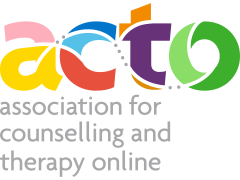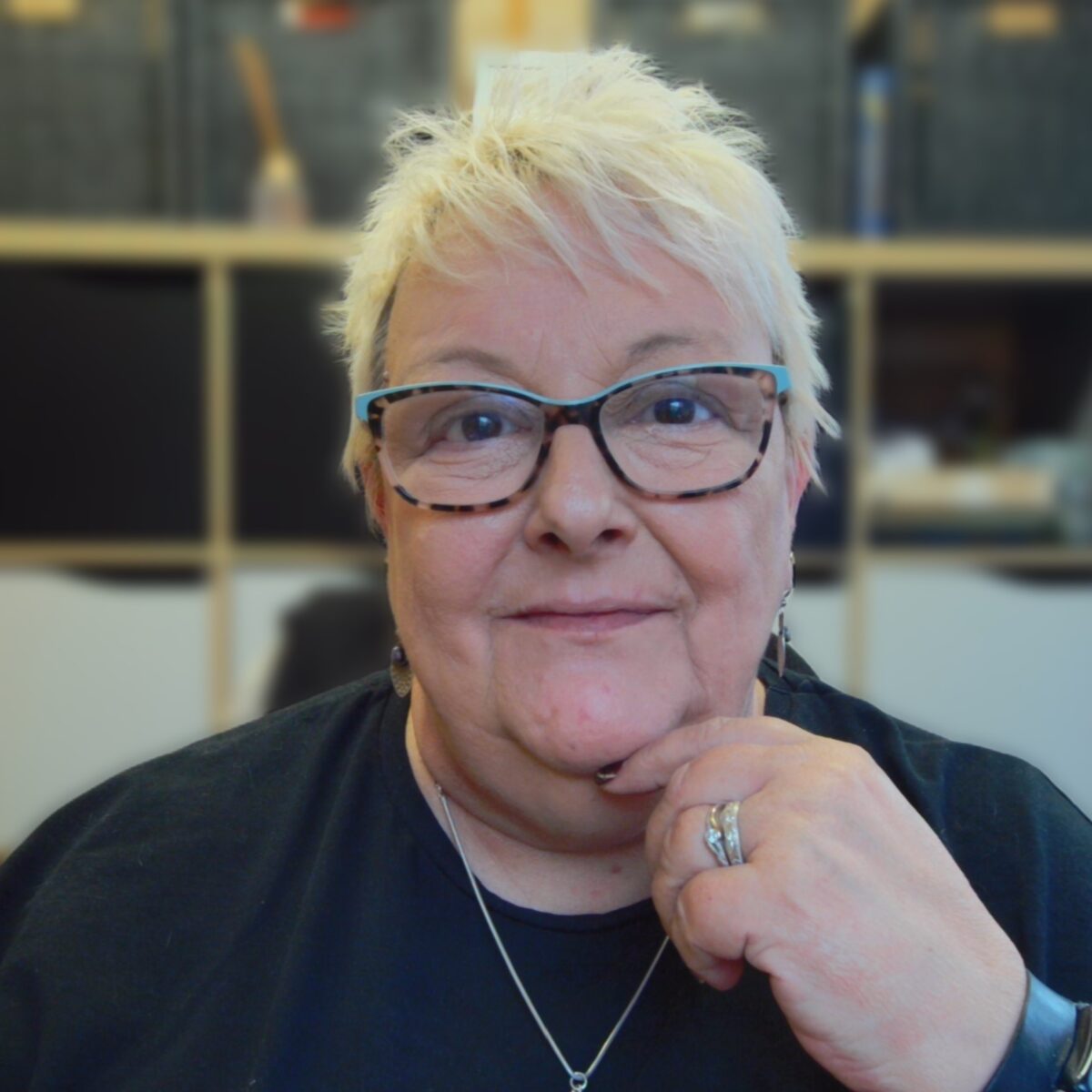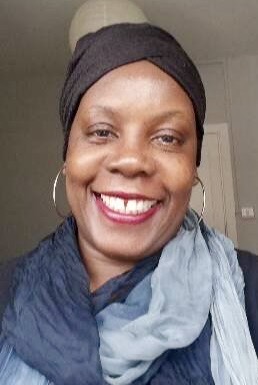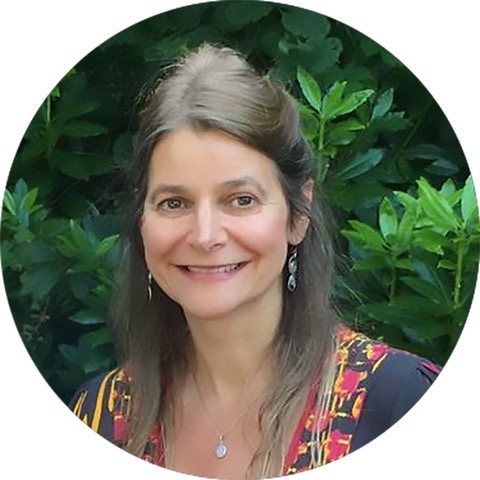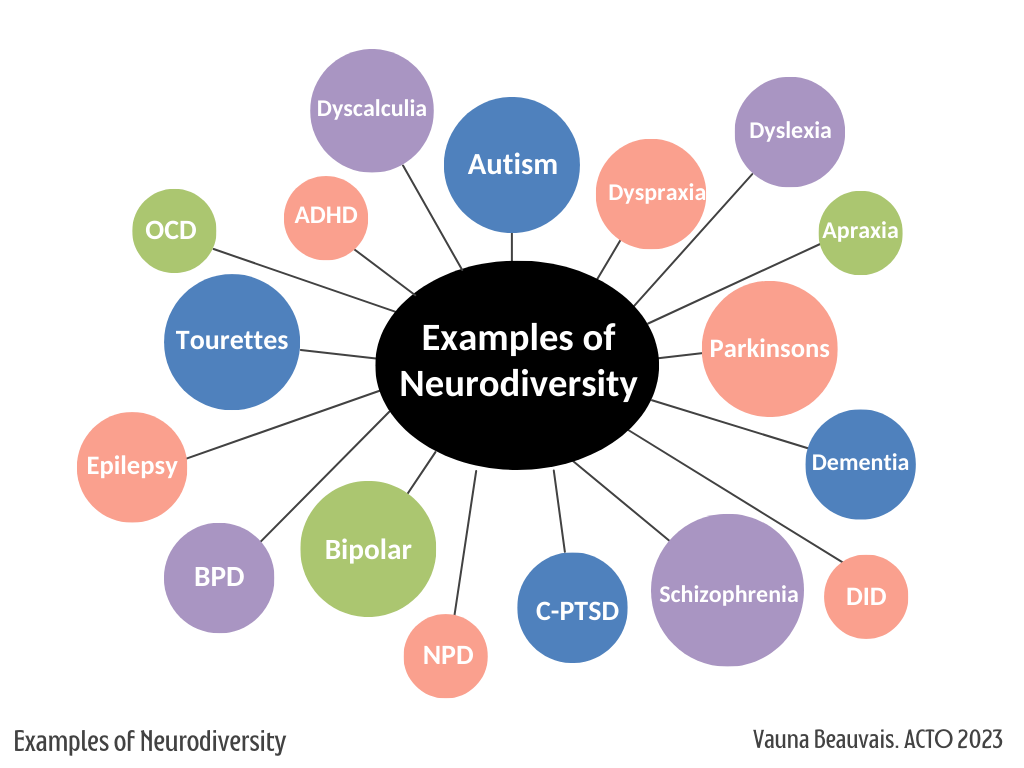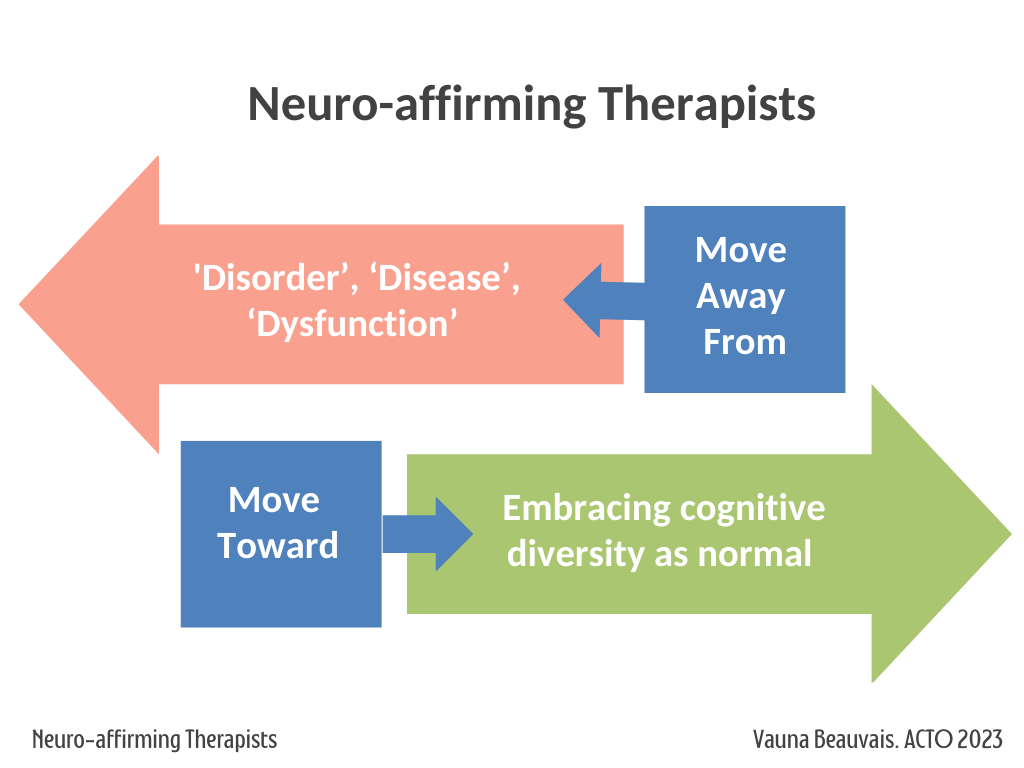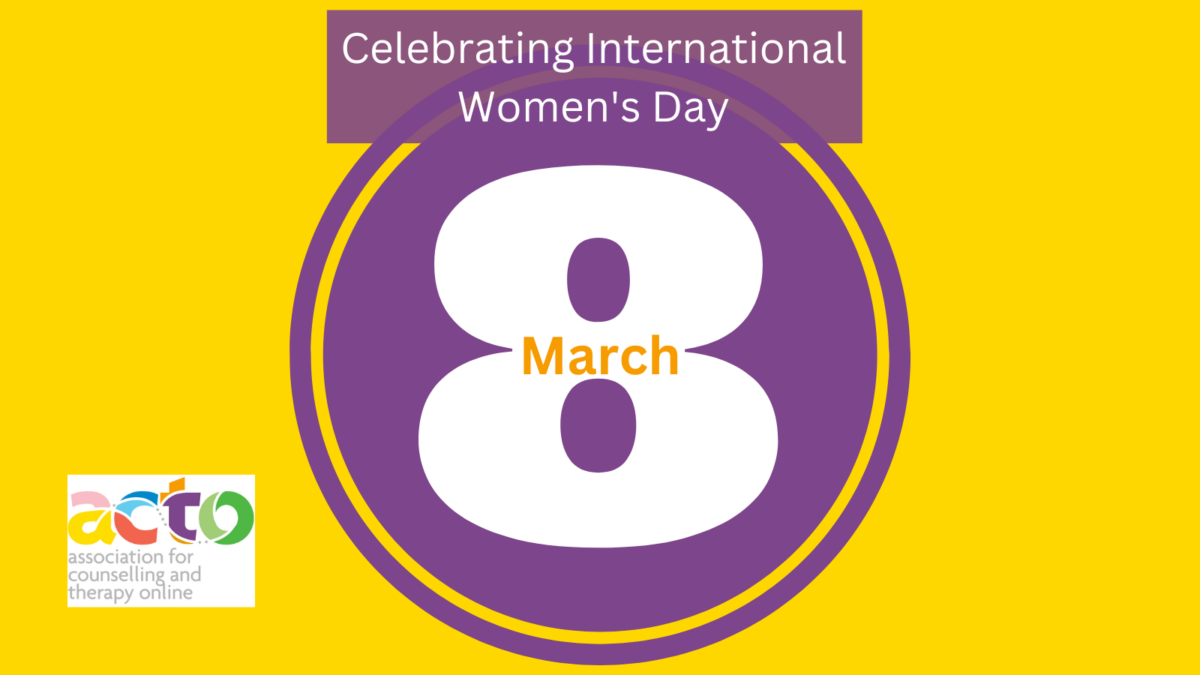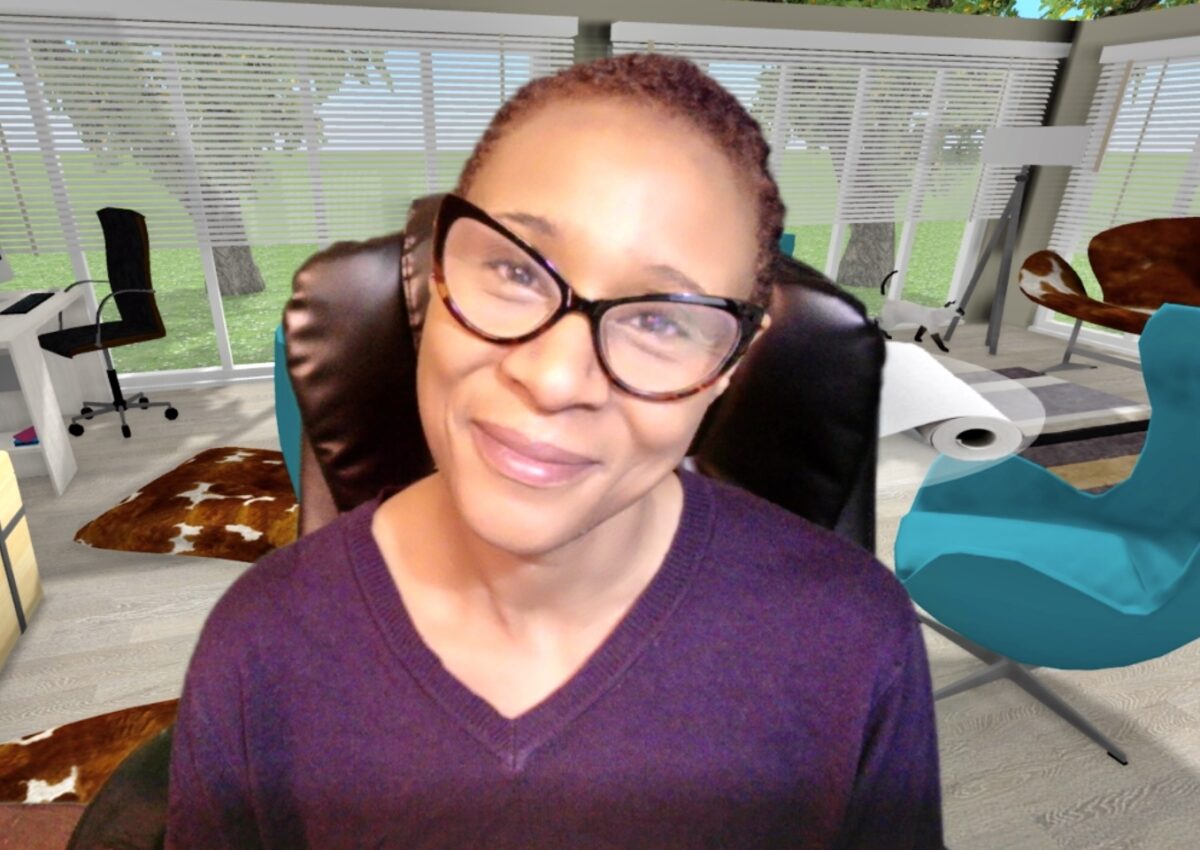Why are so many autistic people missing
from the world of work? Rachael Klug explores the reasons that lie behind the exclusion and suggests ways both for organisations to become an ‘autism friendly’ employer, and for workplace therapists to better support our neurodivergent clients.
It was with a heavy heart that I read recently that only 22% of adults diagnosed with autism are in some kind of regular employment.1 I was saddened but not surprised as it brought home to me the stark reality of how difficult it can be for autistic people just to get a foot on the employment ladder. I’m writing this article as an autistic person, a mother of three young autistic adults, as well as a therapist who specialises in working with neurodivergent clients. It’s something that touches me personally and professionally, and I’m left with a sense of sadness at the number of autistic people who routinely have their opportunities to aspire, and progress, curtailed simply because they are excluded from the workforce.
Facts and figures
According to the Office for National Statistics (ONS) 2 ,332,600 people were diagnosed with autism in the UK in 2021. This means that over 250,000 autistic people were without regular
employment. If we compare the employment rates of 80% of non-disabled people and 47% of disabled people, it is an even more worrying picture, as autistic people had the highest rates of unemployment out of all disabled groups. 2 The ONS found that out of all categories of disablement including hearing impairments, breathing problems, diabetes, heart problems, severe learning difficulties and mental health issues – that autistic people had the lowest rates of employment. 2 While a resounding 77% of unemployed autistic adults say they want to be employed, 3 just a mere 16% are in full-time employment out of the 22% that are employed.1 Too many people remain undiagnosed or are on lengthy waiting lists for an autism assessment, which means they are left out entirely left out of these employment figures.
This is taking place at a time when the UK is experiencing serious labour shortages, and ONS data reveal that almost a third of UK businesses are struggling to recruit staff. 4 This backdrop begs the questions: ‘Why are so many autistic people not engaged in employment?’ and, ‘What does it mean for the therapy profession and how we respond?’ In this article, I explore these questions and share my reflections, which draw on both my personal and professional experiences of navigating the world through the lens of autism, with a focus on how our education system, the world of work and the wider therapy profession respond to people with autism.
What is autism?
Autism is a spectrum condition and affects people in different ways. While it is not entirely clear what causes it, recent research points to strong genetic factors which shape how the brain develops. 5 As an autistic person, you may or may not identify as disabled, but for me and in this piece, it refers to the impediments we autists face socially, culturally and in our lived environments. Like all people, autistic people have their own strengths and weaknesses, but it is usually diagnosed by looking at three key areas – social communication and interaction, repetitive behaviour and sensory issues.
What happens at school?
Too many of our autistic children are required to attend schools where they are expected to fit in and conform to environments that are just not suitable for them. Sensory overwhelm in noisy
classrooms, long school days without breaks, and the social pressure to fit in with peers can leave a toxic legacy of trauma in many cases. If we add in the likelihood that autistic pupils will
experience severe bullying due to ‘being different’, inflicting wounds of deep shame, with increased levels of anxiety and isolation, it’s inevitable that it all takes its toll. 6
Seeing themselves to blame, they turn their frustrations and emotional pain onto themselves, with the terrifying consequences of high levels of self-harming and suicidality in this group of young people. A recent workshop for the Anna Freud Centre, reported that between 11 and 15% of all
patients at risk of attempting suicide are autistic and that 41.4% of people who died by suicide may be autistic.7 If you consider that 1% of the population is autistic, these suicide rates underline just how deadly isolation and stigmatisation are for the autistic community. 6 This all leads to too many young autists leaving school having been failed by the school system itself. Researchers at University College London published a study of 500 autistic students, and found that a staggering 43% of these students were persistently absent from school. 8 The same study also found that the chances of missing school were almost 100% when the students attended a mainstream school rather than a specialist school.
This study underscores the contention voiced here that autistic young people are being let down by the school system. In my practice, I see autistic young people who are left so physically and mentally wounded from school experiences that they are unable to seek regular employment, at least for some years while they recover. So, what does this physical and mental wounding look like for autistic people?
Masking and lack of support
Exhaustion arising from what is known as ‘masking’ can be intense, and can combine with a liturgy of physical ailments, from IBS to intense periods for young women, to migraines that all add up to a high risk of autistic burn out. Young autists learn to mask to try to hide their autistic traits in a desperate attempt to try to fit in, as well as to avoid the stigma of being seen as ‘weird’ or ‘the oddball’. Masking takes a heavy toll, both mentally and physically, on the individual.
The task of trying to access medical support, GP appointments and specialist care, can become an overwhelming pressure for parents and carers. Without financial, emotional and practical support, families are often left struggling, which can exacerbate vulnerabilities, and perpetuates a lack of independence for the young autistic person. Unsurprisingly, with public services so strained, autistic young people are overlooked as waiting lists for assessment grow, and many wait years to receive a diagnosis. The sheer number of obstacles to accessing support can further the autistic person’s sense of isolation, which can in turn impact the individual’s engagement at school, in their community and wider society.
Leaving education in a heightened state of overwhelm is hardly conducive to starting out in the world of employment. Too many young people with autism can find that their late teens up until their early 30s are often spent in recovery from trauma and burnout. I’ve known young autistic people barely able to function, too exhausted to care for themselves or to even leave their home. It can last for months and even years, leaving a legacy of feeling broken and overwhelmed, which continues well into adulthood if left unhealed.
Given the current state of our public services, there are no quick answers, but if we wish to redress this imbalance in rates of employment for autistic people, we will need to look at how our mainstream education system treats young autistic pupils, and it’s long overdue that we find better ways of supporting them.
Applying for jobs
When entering the world of work, young autistic people find that they meet familiar challenges from their days in education. Firstly, there are application forms to navigate and filling out forms can be really confusing for those of us who are autistic and neurodiverse. If you also struggle with dyslexia or ADHD, as many autistic people do, the seemingly simple task of form filling, can feel like being asked to tie your shoelaces using only your teeth; unless you’re a serious contortionist, it’s simply impossible.
The information the employer requires may not be clear to those who are neurodiverse, leaving questions such as: ‘What might I include in a personal statement?’, ‘How do I write about my strengths’ and, ‘What I might bring to a particular job when I don’t like talking about myself?’ For the autistic person, these application processes can be so confusing and overwhelming that they can feel that they have failed at the very first hurdle, without the form even being completed or sent.
Next, there is the interview process. At this point, any autistic person may omit a loud groan. If you have ever been prepped for an interview, the usual tips for good interview etiquette are to keep good eye contact with the interviewer, speak confidently about yourself, convey ease and knowledge of the job, shake the person’s hand. Every single one of these tips can be hellish for many autists to attempt.
I once went for a job interview in which I managed to keep masking my high levels of anxiety for the first part of the interview. However, by the time I had to face the interview panel, I had such a strong migraine that I was effectively blinded. I just pretended I was OK and simply turned my head
to the sound of someone’s voice – I was very good at masking in those pre-diagnosis days. I could conceal the blindness I was experiencing from the migraine, which was triggered by intense
anxiety, and it never occurred to me to say, ‘I have a migraine’.
‘I’m new here’
It’s usual that a new job is rather daunting but for the autistic person, there is so much more to be negotiated. Typically, problems will occur for the new autistic employee if they are unclear about what is being communicated and asked of them; if the work environment is noisy or bright because sensory overload can become intolerable; or if the autistic person begins to feel overwhelmed, isolation and meltdowns can occur which can trigger any trauma and shame from childhood experiences.
What can employers do?
While it may appear that the picture is a bleak one for the small numbers of autistic people who do enter the workforce, I am optimistic that there is plenty that can be done to improve the situation. This begins with employers, and a good example of best practice can be found at Career Accelerator, a leading UK education business that is focusing on improving the lives of neurodiverse people, and aiming to connect neurodiverse students with prospective employers.
The employer, Pearson, recently took part in a programme to match employees who had lived experience of neurodiversity to mentor students into the workforce. Kevin Lyons, a Senior HR Manager at Pearson explains: ‘We participated in the Career Accelerator programme with our employees as mentors to expand their knowledge and understanding of neurodiversity, while also benefitting from mentoring young neurodivergent people. By embracing neurodiversity, we aim to attract and retain a diverse neuro-inclusive workforce and foster a culture where everyone can thrive. Since the programme, we have changed our recruitment processes to ensure we can attract more people who are neurodiverse.’ 9
It is a promising start that is to be welcomed, bridging the gap between school and entry into employment in a way that highlights both inclusivity and understanding. Elsewhere, the
National Autistic Society, in association with the Bloomfield Trust, is providing a programme aiming to address the imbalance in the rates of autistic people in employment by providing candidates for employment with pre-employment training and workplace support, while also giving employers
support, resources and training in neurodiversity.10
The Anna Freud Centre, reported that between 11 to 15% of all patients at risk of attempting suicide are autistic and that 41.4% of people who died by suicide may be autistic7
Researchers at University College London published a study of 500 autistic students, and found that a staggering 43% of these students were persistently absent from school 8
The same study also found that the chances of missing school were almost 100% when the students attended a mainstream school rather than a specialist school.
There was further positive news in April this year, when the UK Government announced it would be undertaking an autism employment review and that it is working closely with the charity, Autistica (www.autistica.org.uk). It will begin by asking employers, employer groups, groups working with autistic people and autistic people themselves to identify the barriers to job searches and career progression, before moving on to develop solutions that work both for autistic people and for employers and public services.
Writing in The Guardian, the Minister for Disabled People, Health and Work, Tom Pursglove, and the Conservative MP, Robert Buckland, outlined their intentions: ‘We want more autistic people to reach their full potential and live the rewarding and fulfilling lives they deserve. In particular, employers need to stop seeing autism as a drawback and recognise it as an asset.’11
These initiatives are steps in the right direction, but much more needs to be done, and the finances and resources need to be available to match any promises made. So often, professions that are attractive to those with autism include archaeology, engineering and computer programming, but it’s important not to fall into the trap of making assumptions about the kind of work that autistic people can do, for we can work in many different settings, including as therapists.
Coming out at work
The writer, Susan Dunne explains how when she was diagnosed with autism later in life and told her peers at work, they responded with, ‘We always thought you were a bit weird.’12 Those of us with autism will be very familiar with the ‘weird’ label, and the feelings of isolation and shame it can engender. She also recalled those who thought her autism diagnosis meant that she was now incapable of continuing with the job that she had been doing for years.12 Line managers need training and support in how to manage a neurodiverse workforce, and know when and where to signpost autistic staff for help.
The therapy profession
Therapy can offer a space in which the autistic person’s strengths and abilities can be explored and their vulnerabilities held, but therapists supporting young autistic people into work
or higher education have a pivotal role to play. However, I believe that specialist training is required for therapists to be able to understand how best to work with their autistic clients. It’s worth acknowledging that our profession still sees autism as a ‘disorder’, a ‘deficit’ and ‘impairment’. The Anna Freud Centre has recently launched an autism training programme in collaboration with AT-Autism for NHS England.14 The training programme has been co-designed, produced and co-delivered with autistic people to promote an ‘experience-sensitive, trauma-informed’ approach. It is such a positive step forward in challenging the myths around autism by including autistic people in devising the training programmes. We are also seeing growing directories of autistic therapists – these can
offer neurodiverse clients a connection to a specialist who is likely to have a lived experience of working through many of the issues connected with autism with which they are struggling.
Closing thoughts
I’d like to caution readers that despite the stereotypes that exist in popular culture, not all autists possess extraordinary talents or abilities like the character played by Dustin Hoffman
in Rain Man. Indeed, this view of autists can become a stereotype that hampers both access to support and also early diagnosis – but with the right conditions in the workplace, we can all bring our unique perspectives and gifts, if we are given the chance.
Our strengths can enrich the working environment, for example, when we bring our rigorous approach and attention to detail to tasks, or when we notice ambiguity in the channels of
communications and ensure that it becomes clearer for everyone in the workplace. As society gets better at understanding the needs of the neurodiverse community, I’m hopeful that the therapy profession will also become more embracing of the fact that there are autistic therapists (I am one), psychologists and carers, and we can all be empathic too. I hope this article contributes to the growing conversation about
autism, work and the therapy profession; and in the process, gives a voice to some fellow and future autists whose experiences of the workforce have been missing for far too long.
Rachael Klug
Rachael Klug BSc, MSc, PhD, BACP Accred is an autistic therapist and supervisor who works in a private, online setting. She is a Director of the Association for Counselling and Therapy Online
(ACTO) and specialises in working with neurodiversity and trauma. Rachael’s special interests are walking her dog, meditation, birdwatching, and sometimes Arsenal – if they are doing well! www.therapyspace.online
This article first appeared in the October 2023 issue of BACP Workplace, published by the British Association for Counselling and Psychotherapy. https://www.bacp.co.uk/bacp-journals/bacp-workplace/ ©BACP 2024
REFERENCES
1 National Autistic Society. The Autism Employment Gap. [Online.]
www.autism.org.uk/what-we-do/news/new-data-on-the-autism-
employment-gap (accessed 26 July 2023).
2 Office for National Statistics. Outcomes for disabled people in the
UK: 2021. [Online.] www.ons.gov.uk/peoplepopulationandcom-
munity/healthandsocialcare/disability/articles/outcomesfordisa-
bledpeopleintheuk/2021 (accessed 26 July 2023).
3 I Am Autism. Autism: Support at work. [Online.] www.i-am-autism.
org.uk/autism-support-at-work/ (accessed 3 September 2023).
4 Office for National Statistics. Changing trends and recent
shortages in the labour market: 2016 to 2021. [Online.]
www.ons.gov.uk/employmentandlabourmarket/peopleinwork/
employmentandemployeetypes/articles/changingtrendsandrece
ntshortagesinthelabourmarketuk/2016to2021 (accessed 3
September 2023).
5 National Autistic Society. The causes of autism. [Online.]
www.autism.org.uk/advice-and-guidance/what-is-autism/
the-causes-of-autism (accessed 24 August 2023).
6 Autistica. Supporting autistic children and young people
through crisis. [Online.] www.autistica.org.uk/downloads/files/
Crisis-resource-2020.pdf (accessed 26 July 2023).
7 Cassidy S. Suicidality and self-harm in autistic people.
A presentation at the Anna Freud and AT-Autism Community
of Practice Event; 23 May 2023.
8 University College London, Brain Sciences. School absence and
refusal high among students with autism. [Online.] www.ucl.ac.uk/
brain-sciences/news/2020/may/school-absence-and-refusal-
high-among-students-autism (accessed 25 August 2023).
9 Career Accelerator. Why hiring neurodiverse staff is good for
business. [Online.] www.careeraccelerator.io/why-hiring-neurodi-
verse-staff-is-good-for-business (accessed 26 July 2023).
10 National Autistic Society. Autism at work programme. [Online.]
www.autism.org.uk/what-we-do/employment/autism-work-
programme (accessed 3 September 2023).
11 Purglove T, Buckland R. Autistic people often out of the
workplace. That should end. The Guardian 2023; 2 April.
www.theguardian.com/commentisfree/2023/apr/02/
autistic-people-often-kept-out-workplace-that-should-end
(accessed 26 July 2023).
12 Dunne S. Autism in the workplace: Always thought you were a
bit weird. The Guardian 2015; 25 June. www.theguardian.com/
social-care-network/social-life-blog/2015/jul/29/autism-in-the-
workplace-always-thought-you-were-a-bit-weird (accessed 26
July 2023).
13 Milton DEM. A mismatch of salience: explorations of the nature of
autism from therapy to practice. Brighton: Pavilion Publishing and
Media Ltd; 2017.
14 Anna Freud Charity. National Autism Trainer Programme. [Online.]
www.annafreud.org/training/national-autism-trainer-programme
(accessed 26 July 2023).
